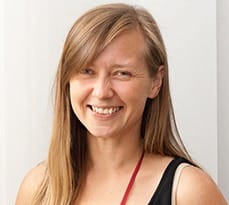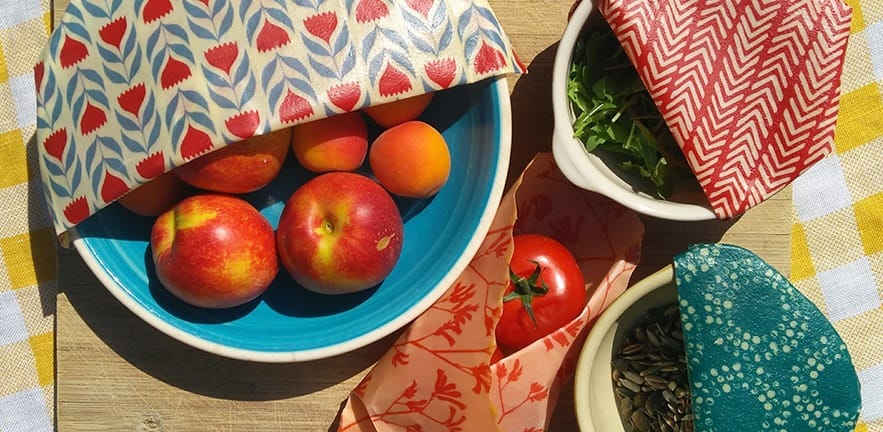
Speaking with a friend, Kath Austin heard how people in pre-plastic days used cotton coated with beeswax to preserve food – and she wondered whether this ancient technology could help with a very modern problem: the tons of plastic wrapping that pollute oceans and pile up in landfills.
So Kath founded a Cambridge-based firm called BeeBee Wraps to make eco-friendly washable food wraps that can last up to 12 months – rather than the 400 years it now takes for some food packaging to decompose.
Made from organic cotton and covered with a mixture of beeswax, tree resin and jojoba oil – a combination Kath experimented with over several months in her kitchen – the wraps keep food fresh for longer, and especially bread, cheese and vegetables, says Kath. BeeBee Wraps is now being mentored by Cambridge Social Ventures, part of the Cambridge Centre for Social Innovation at Cambridge Judge Business School.
As all the ingredients are biodegradable, the wraps can be added to a compost pile at the end of their life cycle or used as firelighters as they burn like candles.
In the UK alone, more than 5 million tonnes of plastic is used each year and less than a third of it is recycled. Recently, there have been some minor steps to reduce the plastic mountains, such as a shift by some consumers to cardboard straws – but packaging remains the major environmental issue.
BeeBee Wraps officially launched in April 2017, and started selling its first food wraps on online shop Etsy. Currently customers can choose from few colourful designs and 4 different sizes, such as 18cm x 18cm for a small wrap or 45cm x 55cm for extra large wrap. Kath hopes to introduce new designs every month.
Helen Underwood of White Cottage bakery, who has been using the wraps for few months, said: “Our Baking School uses locally grown organic grain and local fresh ingredients, wherever possible. The eco-friendly wraps fit in perfectly with our ethos and helps us reduce the plastic we use. And our workshop attendees love the wraps – they provide a great talking point and inspire them to look at making their own changes to the way they buy and store food.”
At the moment there are 2 people in the team and all wraps are produced in Kath’s kitchen, but the venture will be moving to new premises soon and will be hiring more people to meet growing demand.
“We started with a few orders a week and now are receiving hundreds of orders every month,” Kath says. The venture is also partnering with local businesses such as Cambridge Cheese Company, which will use the food wraps in their stores.
The biggest challenge for the venture is scaling up – and that’s a major focus for Kath at Cambridge Social Ventures.
“I have never run a business before and don’t have experience in areas like finance and supply chains, for example. So, it is very useful to talk to someone who has been through all of this before,” she says.
Mark Goodson, Business Advisor at Cambridge Social Ventures, is Kath’s mentor. “The issue of plastics in our environment, and particularly our oceans, is very much at the fore now. It’s great to work with an entrepreneur such as Kath who has rolled her sleeves up and looked at how she can make an impact with the resources at hand. The challenge for BeeBee Wraps is to now scale up and increase their impact at a national level. I have no doubt they will achieve this given the unprecedented interest in the product and growth so far.”
Kath doesn’t pretend that her venture will solve the plastic waste problem, but she hopes it helps some people examine their choices and attitudes.
“My advice would be to observe how much plastic waste you’re consuming and look how can you reduce it by changing some habits,” she says. “For example, if you buy a plastic bag every time you shop, try to bring your own reusable shopping bag instead. Take a reusable water bottle with you and fill up at businesses taking part in the Refill App. Just refuse plastic straws when offered. Just try one thing at the time and you’ll contribute towards a bigger aim – making the world plastic free.”
This article is part of Venturing Forth, our series on the aspirations and challenges of ventures connected to students, alumni and others associated with Cambridge Judge Business School.


